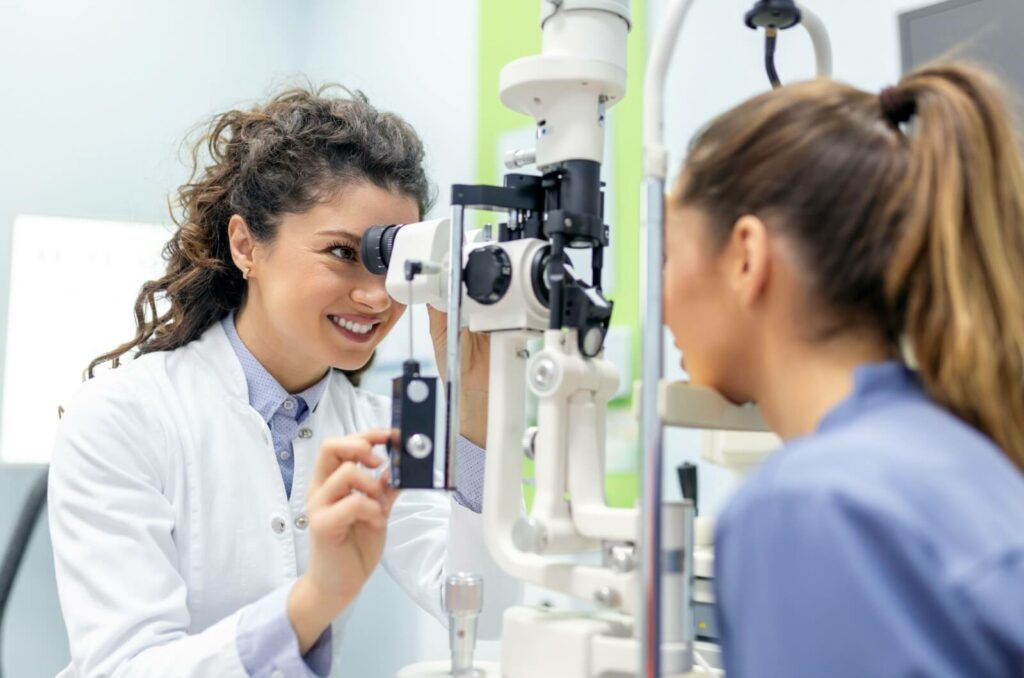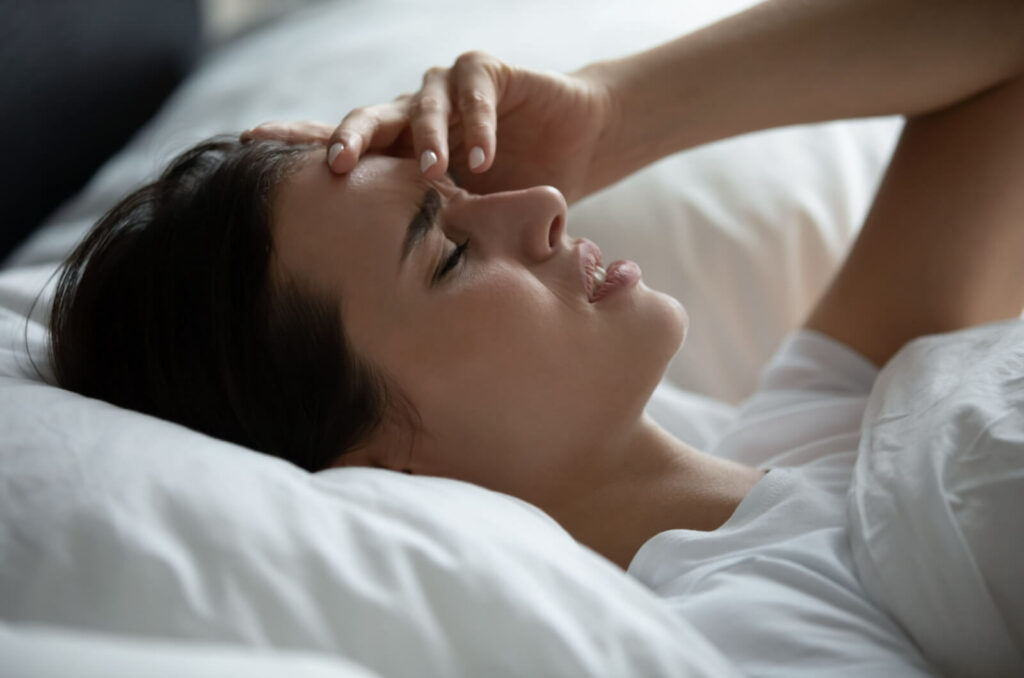Waking up to a world of clarity is a wonderful way to begin your day. However, many people deal with blurry vision from the moment they first open their eyes in the morning. Is this a sign of something serious, or is it just a temporary inconvenience?
Some common causes of blurry vision when you wake up are:
- Poor sleep quality
- Allergies
- Dry eye
- Contact lenses
- Nocturnal lagophthalmos
Poor Sleep Quality
Sleep is essential for a healthy body. While sleeping, your body repairs and regenerates damaged tissues and cells; when you don’t get enough quality sleep, you’ll experience more than exhaustion and sleepiness.
During sleep, your eyes undergo essential maintenance and healing processes. If the repair cycle is disrupted without adequate rest, it can easily cause discomfort and vision issues when you wake up. Chronic sleep deprivation can lead to:
- Reduced tear production, leading to constant burning and stinging sensations.
- A compromised immune system, making your eyes more susceptible to infections and irritation.
- Worsened pre-existing eye conditions which can make existing symptoms of other conditions worse.
Establishing a healthy sleep routine can mitigate these issues. Try to follow a consistent sleep schedule that gives you about 7-9 hours of sleep every night. We recommend creating a comfortable sleeping environment that helps your body and mind relax.
Allergies
Allergic reactions can range from mild to chronic. They’re sometimes persistent and ongoing; other times, they can flare with severe symptoms. Your eyes are often one of the most common parts of the body to be affected during an allergic reaction, and if one occurs when you sleep, you’ll likely wake with dry eyes, blurry vision, and more.
Allergens such as pollen, dust mites, and pet dander can provoke an allergic reaction while you rest, leading to inflammation and discomfort. Allergies often worsen at night as allergens can accumulate on your bedding and in your sleeping environment. Exposure to allergens can easily cause blurry vision upon waking and lead to uncomfortable symptoms.
If you often wake up with blurry vision and allergy-like symptoms, we recommend changing your sleeping environment. To reduce your symptoms, regularly wash your bedding, vacuum your bedroom, and use over-the-counter antihistamines when needed.
Dry Eye
Your eyes are constantly lined with a thin film of tears. Tears help keep eyes protected and hydrated while flushing away damaging particles like dust, dirt, and bacteria. However, tear film isn’t always sufficient; sometimes, it can’t fully protect your eyes.
When your eyes can’t produce enough tears or don’t produce the right type of tears, it causes a condition called dry eye. Dry eye can be recognizable by:
- Constant burning and stinging sensations
- Visible redness
- Blurry vision
- Light sensitivity
- Frequent blinking and overly watery eyes
Dry eye can develop due to a wide range of possible factors, with your environment and other underlying conditions being common causes. Fortunately, your optometrist can help treat dry eyes through specialty eye drops, warm compresses, and in-office dry eye therapy.

Contact Lenses
If you use contact lenses every day, their use could be responsible for your eyesight being blurry when you wake up—especially if you’re using out-of-date lenses. If your lenses are expired or dirty, they can easily harbor bacteria that irritate and infect the eye. Old lenses are also more likely to be bent or torn, which can mildly scratch the cornea and lead to various vision problems.
Sleeping with your contacts in should always be avoided. It deprives your eyes of necessary oxygen while irritating the cornea’s surface, leading to blurry vision upon waking. To avoid these problems, make sure that you always:
- Wash your hands before and after handling your lenses
- Store your contacts in a clean case with a new cleaning solution
- Avoid wearing your lenses for longer than recommended
- Remove your lenses before going to sleep
If your lenses are expired, don’t put your eyes at risk. Instead, visit your optometrist for a contact lens fitting and exam to get your hands on up-to-date contacts and personalized advice to help keep your vision clear.
Nocturnal Lagophthalmos
Sometimes, blurry vision can occur when your eyes don’t fully close while you sleep. Exposure to oxygen can leave your eyes exposed to the outside air, drying and irritating them while they should be repairing and restoring themselves.
Luckily, there is a name for this condition: nocturnal lagophthalmos. It can be challenging to treat without professional help, as it often develops due to a problem with the connection between your nerves and brain. Fortunately, your optometrist can help through:
- Recommendations for protective eyewear to ensure moisture retention.
- Prescription of eye drops or ointments to keep the eyes lubricated throughout the night.
- Special tape designed to keep your eyelids securely closed.
In severe cases, surgical intervention may be necessary to correct the condition and protect your eyes.
You Deserve Clear, Comfortable Vision
Waking up with blurry eyesight can be frustrating, but there’s no need to deal with this alone—not when our team at Total Vision Camarillo can help. Our team can examine your eyes to find what’s causing your eyesight troubles and give you a personalized plan going forward. You deserve clear, comfortable vision, so book an appointment with our team today.



